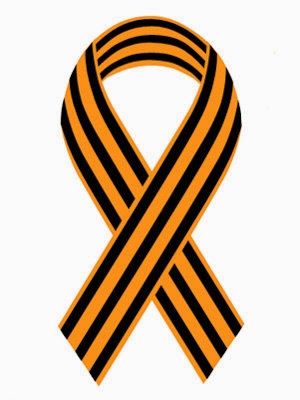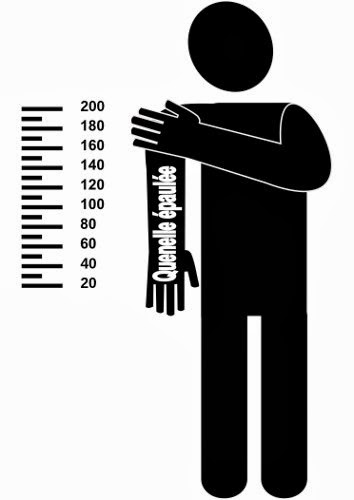Q: It seems that the United States has found a new European ally and that the Anglo-American and Franco-German alliances don't exist any longer. France has adopted a hostile stance against Iran, especially toward its role in the Middle East. What is Iran's reaction to the shift in French foreign policy?
A: Perhaps it is the Western media, which issues statements, suggesting that France is also in the US camp. We believe that this is a premature assumption, although we confirm that such efforts are happening. This might be the main reason behind the policies of some French officials, who have adopted more extreme policies towards Iran's nuclear issue.
Of course, we are surprised by this change in traditional French policies. We have been acting in accordance with the rules and regulations of the IAEA since it is the only reliable center to review the technical and legal aspects of our nuclear program. We expect France to adopt a more realistic stance. If high-ranking French officials review their stances on Iran's peaceful nuclear activities, the results will run counter to what the Western media has been saying.
Q: Do you see this change due to a change of government in France? As you know some reports suggested that the United States has changed its unilateral policy and this policy shift is attracting some countries like France to the US, what do you think?
 A: We see no changes in the hostile US policies, which have never ceased, against our country. The harsh US reaction to the IAEA report on Iran's nuclear program is a good example. The Iran-IAEA agreement has not brought about any change in the US approach toward Iran; although some American officials did offer support for the agreement, it is not enough.
A: We see no changes in the hostile US policies, which have never ceased, against our country. The harsh US reaction to the IAEA report on Iran's nuclear program is a good example. The Iran-IAEA agreement has not brought about any change in the US approach toward Iran; although some American officials did offer support for the agreement, it is not enough.We believe that France has supported Iran's peaceful nuclear activities in the past, but they have set forth some points, which are very close to US policies. We have repeatedly emphasized that Iran and France should make use of their good relations. The more the French government's policies are in line with the realities of international and regional arenas, the more it will help the expansion of Iran-France relations in the future.
Q: As you mentioned earlier, the United States intends to do some maneuvering concerning Iran's nuclear case, but it seems that it can't even manage to influence public opinion at home. Consequently, it has focused on other issues, like accusing Iran of sending arms to Iraq, which are supposedly then used against American soldiers, or even going beyond that and accusing Iran of having a hand in the escalating crisis in Afghanistan and supporting the Taliban. What are Iran's policies to counter these threats?
A: These accusations are not new. We have repeatedly dismissed such baseless allegations. Up to now, the US has not provided any documentation or other proof supporting these accusations, since they are determined not to take the responsibility for the Iraq debacle, it is necessary for them to put the blame on another country.
Apparently, the US president has chosen the easy way out, but this will not help him solve his problems in Iraq. The best way to resolve the crisis in Iraq would be to wake up and face reality after a 4-to-5-year futile presence in the war-torn country.
More than 700,000 Iraqis have been killed and injured and thousands of others have become homeless. Non-Americans and even Americans admit that the US is sinking in a quagmire.
Q: According to the western media, the United States plans to attack Iran or isolate the country. How do you assess this claim?
A: As I said earlier, the best, and most logical way for the United States, is to face realities. The easy way is to either put the blame on others or make the Iraqi government look inefficient. What the US is undertaking is a betrayal of public opinion, but what Iran has to do is to explain the basis of its relations with the Iraqi nation.
Restoration of security and peace in Iraq will also secure Iran and other regional states. We have to explain to the world that Iran would not benefit from instability in Iraq.
Iran was the first country to recognize the new Iraqi government and it has always supported the country's popular administration; Iran has had a great role in Iraq's reconstruction and it has had many business transactions with the country.
Any country, which establishes an embassy in a country under such critical conditions, is surly eager to bring security back to that country, and I would like to point out here that there are countries that are not willing to open embassies in Iraq.
All Iraqi officials have acknowledged Iran's positive role in the country's reconstruction. We have to help the Iraqi and American nations, and the people of the region realize this fact. We need explain Iran's policies to the world.
In my opinion, this is the most logical path for Iran. We have to strengthen our relations, develop our cooperation with neighboring states and support regional cooperation organizations. We will spare no effort in supporting the Iraqi government.
Before I talk about the security problem that faces the Iraqi government, I must mention that it does not have sufficient authority to implement security. After a 4 to 5 year presence in the country, US forces have not handed over the responsibility of the country's security to the Iraqi government. I think Iraqi officials would be able to restore security in their own country much better than US forces. The problem is that the United States does not want to accept such an idea.
Q: Iran has never recognized the Taliban. The US alleges that Iran has ties with this terrorist group. What is your opinion about the allegations?
A: The United States follows the very same policy in Iraq and Afghanistan. We have always supported the Afghan people and have had the most important role in reconstructing Afghanistan.
Terrorist groups in Afghanistan were either created by crooked US policies or supported by the US after their formation. The US turned a blind eye to their terrorist acts in Afghanistan and Iraq.
As I have said many times before, the stability and security of Iran's borders, including the country's border with Afghanistan, is in the best interests of the Islamic Republic. It is clear that security in Afghanistan will provide security for Iran as well.
We have always supported the Afghan government as it is elected and supported by the Afghan nation.
Western countries have promised many things to help the Afghan people, yet according to the people of Afghanistan, the Islamic Republic has had the biggest role in the reconstruction of their country.
Ask the West how many of their promises have been fulfilled. The Islamic Republic has tried to help the Afghan government by supporting it, as well as providing economic assistance and contributing to the reconstruction of the country.
The West accuses Tehran of supporting the terrorist groups based in Afghanistan or Iraq. These groups were actually formed either as a result of Washington's twisted policies in the region, or in some fashion, the groups were backed by the United States after they were formed.
The United States has somehow overlooked their terrorist acts in the region.
The terrorists, currently based in Iraq, are endangering the security of Turkey and Iran. They have used the presence of occupiers in Iraq as an excuse for their existence. The occupiers and these groups have held meetings in which the terrorists have been supported by the United States to continue terrorizing the region.
We have confronted countless weapon smugglers on our borders with Iraq and many of our soldiers have been killed.
Q: The Western media and the international community make it looks that it is Iran that smuggles weapons into Iraq. Why doesn't Iran move to counter such allegations? For example, the terrorist group PJAK based in Kurdistan; everybody knows that PJAK is a mercenary of the US and Washington supports it. Why don't we reveal the facts about them?
A: It is not true. There have been media works to reveal the facts. We have been trying to adopt an active approach in our diplomacy. For example, we have always been willing to expand ties and cooperation with Iraq, Afghanistan, or the Persian Gulf littoral states. We believe that by promoting cooperation in the region, groups like PJAK would not been provided with the opportunity to go on with their acts. The tactic has been successful and fruitful, so far.
Again, the existence of such groups is because of the incorrect policies of some governments, and their activities have been overlooked by certain countries. These are tricks by these governments to extend their stay in the region.





